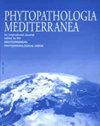Response of carrot seed germination to heat treatment, the emergency measure to reduce the risk of ‘Candidatus Liberibacter solanacearum’ seed transmission
IF 1.9
3区 农林科学
Q2 AGRONOMY
引用次数: 0
Abstract
In Europe and the Mediterranean region, ‘Candidatus Liberibacter solanacearum’ (Lso) is associated with emerging diseases of Apiaceae crops, mainly carrot. Emergency measures for import of carrot seed were set, requiring seed to be heat-treated at 50°C or tested as Lso-negative by PCR. The germination response to heat treatment was assessed for 24 carrot cultivar and hybrid seed lots. Ten parsley, five fennel, and two celery seed lots were also analysed. Of these 41 seed lots, 21 were Lso-infected. Water heat treatment significantly decreased germinability compared to dry heat treatment, indicating that dry heat treatment is a cheaper and less detrimental procedure. However, the dry heat treatment significantly decreased seed germination compared to untreated controls in four of 24 seed lots of carrot, four of ten parsley seed lots, three of five fennel seed lots, and one of two celery seed lots. For parsley, the heat treatment reduced germinability to a lesser extent in Lso-infected than Lso-free seed lots. These data show that heat treatment can affect the germination of Apiaceae seeds to varying degrees, depending on species or variety, the type of heat treatment, and the sanitary status of the seeds.胡萝卜种子萌发对热处理的响应,降低‘番茄自由候选菌’种子传播风险的应急措施
在欧洲和地中海地区,' ' Candidatus Liberibacter solanacearum ' (Lso)与Apiaceae作物(主要是胡萝卜)的新发疾病有关。制定了胡萝卜种子进口应急措施,要求对种子进行50℃热处理或PCR检测为lso阴性。研究了24个胡萝卜品种和杂交种子批次对热处理的萌发响应。还分析了10根欧芹、5根茴香和2根芹菜种子。41个种子批次中,21个被lso感染。与干热处理相比,水热处理显著降低了发芽率,这表明干热处理是一种更便宜、危害更小的方法。然而,与未经处理的对照组相比,干热处理显著降低了24组胡萝卜种子中的4组、10组欧芹种子中的4组、5组茴香种子中的3组和2组芹菜种子中的1组的种子发芽率。对于欧芹来说,热处理对lso感染种子的发芽率的降低程度要小于对lso未感染种子的降低程度。这些数据表明,热处理可以不同程度地影响蜂科种子的萌发,这取决于物种或品种、热处理类型和种子的卫生状况。
本文章由计算机程序翻译,如有差异,请以英文原文为准。
求助全文
约1分钟内获得全文
求助全文
来源期刊

Phytopathologia Mediterranea
生物-植物科学
CiteScore
4.40
自引率
8.30%
发文量
28
审稿时长
6-12 weeks
期刊介绍:
Phytopathologia Mediterranea is an international journal edited by the Mediterranean Phytopathological Union. The journal’s mission is the promotion of plant health for Mediterranean crops, climate and regions, safe food production, and the transfer of new knowledge on plant diseases and their sustainable management.
The journal deals with all areas of plant pathology, including etiology, epidemiology, disease control, biochemical and physiological aspects, and utilization of molecular technologies. All types of plant pathogens are covered, including fungi, oomycetes, nematodes, protozoa, bacteria, phytoplasmas, viruses, and viroids. The journal also gives a special attention to research on mycotoxins, biological and integrated management of plant diseases, and the use of natural substances in disease and weed control. The journal focuses on pathology of Mediterranean crops grown throughout the world.
The Editorial Board of Phytopathologia Mediterranea has recently been reorganised, under two Editors-in-Chief and with an increased number of editors.
 求助内容:
求助内容: 应助结果提醒方式:
应助结果提醒方式:


